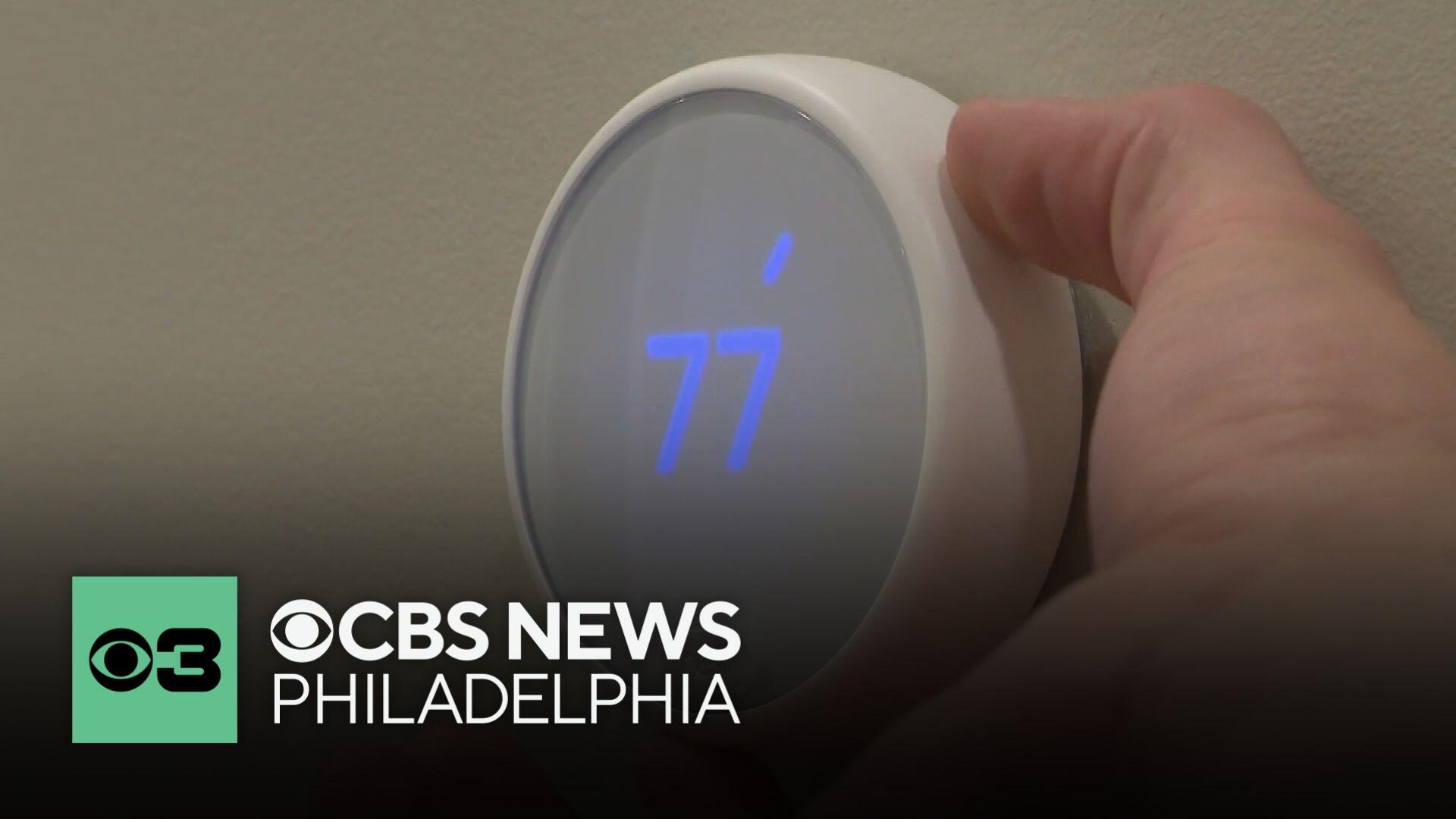Is your thermostat in the wrong spot? Why it could be costing you in this heat wave - CBS Philadelphia
/ CBS Philadelphia
How to save money on your energy costs during a heat wave | In Your Corner

While the U.S. Department of Energy recommends setting your thermostat to at least 78 degrees, there are other things you can do around your house to try to stay cool and keep costs down without sacrificing too much comfort.
As heat index values could reach as high as 110 degrees, your air conditioning will likely be working overtime. To ensure it's running as efficiently as possible, check the filter.
Experts recommend you change your HVAC filter every one to two months. A clogged filter can reduce airflow and put extra strain on the system, according to Philadelphia-based Lawrence Heating and Air.

Adding a smart or programmable thermostat can also help you save by scheduling the temperature to increase when you leave and cool down by the time you get home or go to bed. Some local utilities, like PECO, might also offer rebates for installing a smart thermostat.
The U.S. Department of Energy says you can save as much as 10% a year on heating and cooling by adjusting your thermostat seven to 10 degrees from its normal setting for up to eight hours a day.
But even if your system is running smoothly, the location of your thermostat could make a substantial difference.
An interior wall in a central, frequently used room, like the living room, is an ideal place to ensure it is reading accurate temperatures. Placing it above air vents, near windows or doors, or in direct sunlight can cause your system to run unnecessarily, increasing your costs, according to the U.S. Department of Energy.
Likewise, make sure it's not near any lamps, electronics, like TVs, or appliances that emit heat.
Fans can help keep air circulating while using less energy. Just make sure your ceiling fan is set to spin counterclockwise so that it's blowing cooler air down. Your fan should have a switch near its motor to change its direction.

Avoiding oven use and air-drying dishes instead of running the heated dry option on your dishwasher can also help keep things cooler inside your home. Waiting to use appliances until nightfall during off-peak hours can also save energy and money.
Also, take a look around your home to make sure you don't have cracks around your doors or windows, or any leaks in your ductwork or around your window A/C unit. You don't want your cool air escaping or warm air coming in.
PECO, PPL, Atlantic City Electric and PSE&G all offer home assessments or audits — either for a low cost or no cost — where someone can come out and help you find where you could be losing energy and money.
Do you have a money question, a consumer issue, or a scam story you want to share? Email [email protected]
Josh Sidorowicz is an investigative reporter specializing in consumer issues and misinformation at CBS News Philadelphia.













